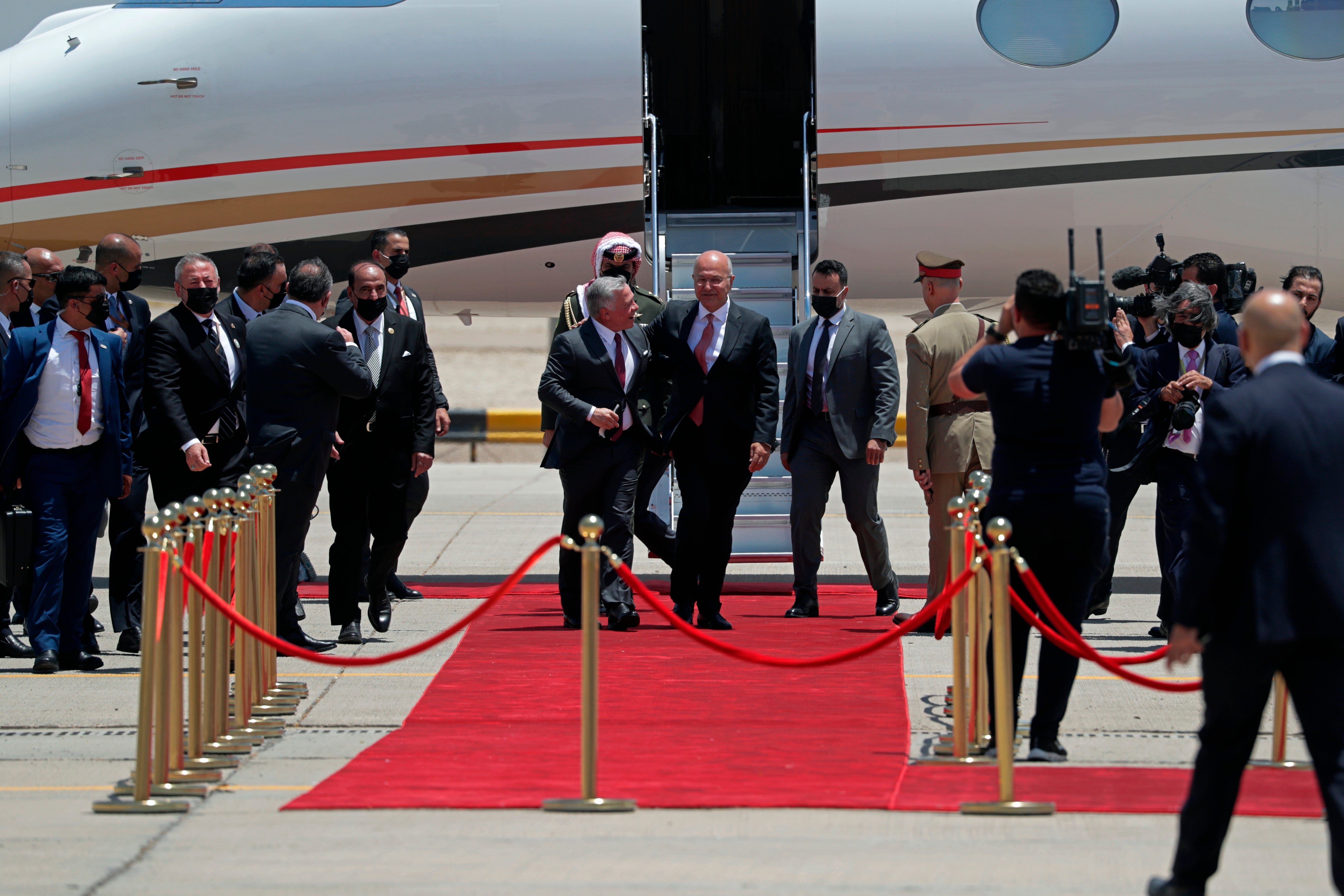Egyptian, Jordanian and Iraqi leaders meet in Baghdad
Egypt's president and Jordan's king have held tripartite talks with Iraq's prime minister in Baghdad

Your support helps us to tell the story
From reproductive rights to climate change to Big Tech, The Independent is on the ground when the story is developing. Whether it's investigating the financials of Elon Musk's pro-Trump PAC or producing our latest documentary, 'The A Word', which shines a light on the American women fighting for reproductive rights, we know how important it is to parse out the facts from the messaging.
At such a critical moment in US history, we need reporters on the ground. Your donation allows us to keep sending journalists to speak to both sides of the story.
The Independent is trusted by Americans across the entire political spectrum. And unlike many other quality news outlets, we choose not to lock Americans out of our reporting and analysis with paywalls. We believe quality journalism should be available to everyone, paid for by those who can afford it.
Your support makes all the difference.Egypt's president arrived in Baghdad on Sunday on a first official visit to the country in over 30 years, for tripartite talks with Jordan and Iraq to deepen economic and security cooperation.
Abdel Fattah el-Sisi was greeted by Iraq's President Barham Saleh upon arriving Sunday morning. It marked the first time Egypt's president paid an official visit to Iraq since the 1990s when ties between both countries were severed after Saddam Hussein invaded Kuwait
Jordan's King Abdullah II arrived shortly afterwards, he and el-Sisi then met with Iraqi Prime Minister Mustafa al-Kadhimi. The meetings are seen largely as an attempt to neutralize Iran's influence across the region.
Al-Kadhimi also aims to shore up regional alliances and bolster Iraq's standing in the Middle East as a mediator, after it recently hosted talks between Iran and Saudi Arabia focusing on the war in Yemen
“This visit is an important message to our people that we are mutually supportive and unified to serve our people and the people of the region,” al-Kadhimi said, according to a statement from his office.
Iraqi Foreign Minister Fuad Hussein said in a press conference following the meeting that a wide range of topics had been discussed, including economic and political cooperation, large-scale industrial projects, and trade in medicine and agricultural pesticides.
The talks, which were welcomed by the U.S., also covered regional issues including the Syria crisis, the conflict between Israel and the Palestinians, and the war in Yemen.
“Iraq must be isolated from regional interventions” Jordan’s Foreign Minister Ayman Safadi told reporters after the meeting, in an apparent reference to Iran’s powerful influence.
Ethiopia’s Grand Renaissance Dam project, which Egypt fears will imperil its water supply, was also discussed, he added, and all three countries agreed that a political solution and the return of refugees was needed to end the Syrian crisis.
“The message from the leaders is we stand together in the face of these challenges,” he said.
Iraq has already signed key economic and trade agreements with both Jordan and Egypt.
In November, Egypt signed 15 memoranda of understandings that spanned sectors from oil to construction and trade. Jordan imported 10,000 barrels a day of oil from Iraq, but this was halted due to coronavirus restrictions. The two countries were also in talks to build an oil export pipeline from Basra to the port of Aqaba.